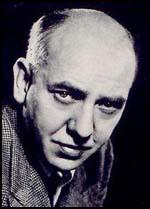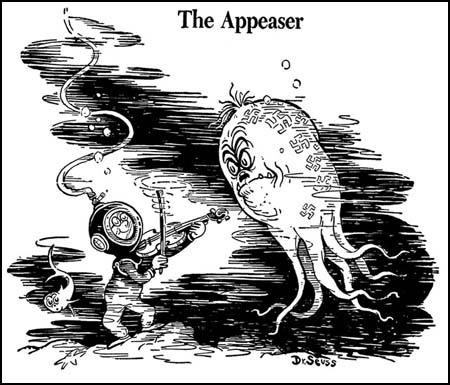Ralph Ingersoll

Ralph McAllister Ingersoll was born in New Haven, Connecticut, on 8th December, 1900. He was educated at Yale University and after graduating After leaving school he worked as a mining engineer in California.
In 1923 he moved to New York City and became a reporter for the New York American. Two years later he was recruited by Harold Ross to work as managing editor for The New Yorker. He was such a success that Henry Luce appointed him to do the same job for Time Magazine. He also devised the formula of business magazine Fortune, eventually becoming general manager of the company.
Over the years Ingersoll grew critical of what Henry Luce was trying to do with Time Magazine: "Time's technique for handling news is so simple that it seems to have eluded several generations of critics and yet it is almost solely responsible for (A) Time's monumental commercial success and (B) Time's equally monumental failure in the fields of ethics, integrity, and responsibility. The problem Henry R. Luce and the late Briton Hadden tackled when they set out to invent their new kind of weekly news magazine was how to condense a week's news on all fronts: national, international, cultural, and business into a package of words that could be read cover to cover in a couple of hours."
Winston Churchill became prime minister in May 1940. Churchill realised straight away that it would be vitally important to enlist the United States as Britain's ally. Randolph Churchill, on the morning of 18th May, 1940, claims that his father told him "I think I see my way through.... I mean we can beat them." When Randolph asked him how, he replied with great intensity: "I shall drag the United States in." Churchill appointed William Stephenson as head of the British Security Coordination (BSC).
As William Boyd has pointed out: "The phrase (British Security Coordination) is bland, almost defiantly ordinary, depicting perhaps some sub-committee of a minor department in a lowly Whitehall ministry. In fact BSC, as it was generally known, represented one of the largest covert operations in British spying history... With the US alongside Britain, Hitler would be defeated - eventually. Without the US (Russia was neutral at the time), the future looked unbearably bleak... polls in the US still showed that 80% of Americans were against joining the war in Europe. Anglophobia was widespread and the US Congress was violently opposed to any form of intervention." An office was opened in the Rockefeller Centre in Manhattan with the agreement of President Franklin D. Roosevelt and J. Edgar Hoover of the FBI.
Jennet Conant, the author of The Irregulars: Roald Dahl and the British Spy Ring in Wartime Washington (2008) argues that Ernest Cuneo, who worked for British Security Coordination, was "empowered to feed select British intelligence items about Nazi sympathizers and subversives" to friendly journalists such as Ingersoll, Walter Winchell, Drew Pearson, Walter Lippmann, Dorothy Thompson, Raymond Gram Swing, Edward Murrow, Vincent Sheean, Eric Sevareid, Edmond Taylor, Rex Stout, Edgar Ansel Mowrer and Whitelaw Reid, who "were stealth operatives in their campaign against Britain's enemies in America". Cuneo also worked closely with editors and publishers who were supporters of American intervention into the Second World War. This included Arthur Hays Sulzberger (New York Times), Henry Luce (Time Magazine and Life Magazine), Helen Rogers Reid (New York Herald Tribune), Barry Bingham (Louisville Courier-Journal), Paul C. Patterson (Baltimore Sun) and Dorothy Schiff (New York Post).
Ingersoll felt so strongly about this issue that he established the PM newspaper in New York City. With the financial backing of another supporter of intervention, Marshall Field III, the newspaper began on 18th June, 1940. In its first editorial, that appeared on the front page, Ingersoll wrote: "We are against people who push other people around" and demanded support for the Allies in the Second World War. It accepted no advertising in an attempt to be free of pressure from business interests. It also made use of large photographs and the cartoons of Arthur Szyk and Theodor Geisel (Dr. Seuss).

PM managed to achieve a circulation of 200,000, however, without the ability to carry advertising, it could only survive with the sponsorship of Marshall Field III, who now owned Chicago Sun, another pro-intervention newspaper. Thomas E. Mahl, the author of Desperate Deception: British Covert Operations in the United States, 1939-44 (1998) has argued: "PM never attracted enough circulation to make money, but it was a wonderful propaganda vehicle despite its small circulation. In September, 1940, Field bought out the other backers for twenty cents on the dollar." In a declassified report from British Security Coordination it listed PM as "among those who rendered service of particular value".
After the United States entered the Second World War, Ingersoll, aged 41, joined the US Army. Ingersoll wrote about his experiences in his book, Top Secret (1946). He returned to PM after the war but it was forced to close in 1948.
Ralph McAllister Ingersoll died in Miami Beach, Florida on 8th March, 1985.
Primary Sources
(1) Thomas E. Mahl, Desperate Deception: British Covert Operations in the United States, 1939-44 (1998)
PM never attracted enough circulation to make money, but it was a wonderful propaganda vehicle despite its small circulation. In September, 1940, Field bought out the other backers for twenty cents on the dollar.

